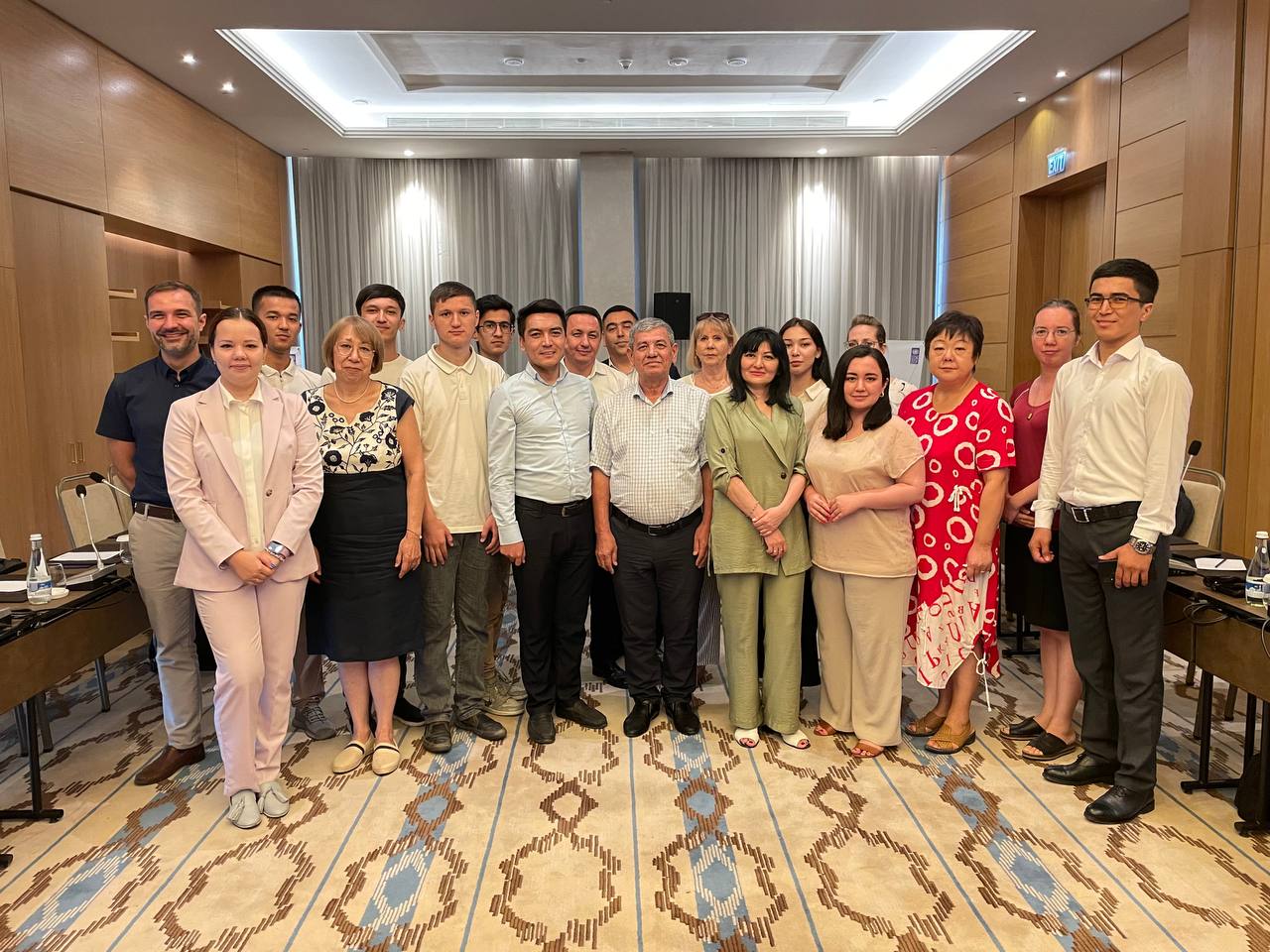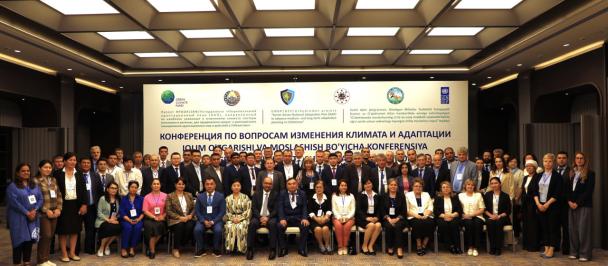Uzhydromet, UNDP and FCDO presented the results of a Regional Project to ensure climate security in Central Asia
August 5, 2022

Tashkent, July 27, 2022 We held a closing seminar with the participation of representatives of the British Embassy in Uzbekistan, UNDP and Uzhydromet, participants and beneficiaries of the project to sum up the results of two phases of our joint project in 2021-2022. The project “Political Action for Climate Security in Central Asia", implemented jointly with the Center for Hydrometeorological Services of the Republic of Uzbekistan (Uzhydromet) and funded by the UK Department of Foreign Affairs and International Development (FCDO) was aimed at strengthening political action on climate security in Central Asia by supporting stronger and more consistent action on climate change and raising public awareness.
The results of the project in Uzbekistan contributed to the implementation of activities aimed at combating climate change in order to fulfill national obligations to reduce greenhouse gas emissions, adopted, and announced at COP26 of the UNFCCC, held in 2021 in Glasgow, UK.
Together with personnel from the Overseas Development Institute (ODI) in the UK and national experts with the support of UNDP employees in Uzbekistan, two research papers were produced: “Climate risks that need to be studied and managed to reduce threats to the main goals of renewable energy development” and “Socio-economic and investment opportunities for the transition to a zero-carbon economy”, which will be published in English, Uzbek and Russian and distributed to all interested ministries, departments, and the public. Director of the Scientific Research Hydrometeorological Institute at Uzhydromet, Fakhriddin Agzamov, noted: “The studies highlight the main directions for the development of the use of renewable energy sources, provide climate statistics, outline the main problems of the development of the energy sector and formulate reasonable recommendations for its decarbonization".

Representatives of the private sector actively participated in a number of roundtable discussions to determine their possible contribution to the reduction of greenhouse gas emissions associated with the work of their companies and enterprises through the use of renewable energy technologies, participation in the management and disposal of municipal solid waste. For them, experts from Uzhydromet developed a pilot methodology for calculating their carbon footprint, and participants from the private sector were trained to perform such calculations. “The private sector has two alternatives for reducing greenhouse gas emissions – modernization of equipment and increase in carbon absorption of carbon emission by expanding forest grounds. Private enterprises can purchase modernized equipment that will enhance energy efficiency, that is, will contribute to the reduction of greenhouse gas emissions, and to the development of forest areas. These measures will not only lead to a reduction in greenhouse gas emissions but will also improve the overall environmental situation in the country,”- Zarif Garayev, the participant of the discussion emphasized.
Project experts have prepared and made free accessible online training courses for youth on climate change issues in 2021 and 2022. Simulation and role-playing activities were organized on climate negotiations and the contribution of youth to fight against climate change at the national and regional levels. Also, study tours were held for young people to renewable energy facilities. “We learned about the possibilities of alternative energy, the use of renewable energy sources, photovoltaic panels, solar and wind power plants - all of them are elements of green energy. During the excursion, we, students at Tashkent universities, learned more about the global problem of climate change and our interest in implementing urgent measures and actions to combat this challenge”- stated Nadirbek Agzamov, graduate student at the Tashkent State Transport University

Employees of government ministries and departments, national and international experts, student youth, representatives of the private sector, research and educational institutions, and the media were involved in the project activities. Conducted large-scale information campaigns in the media. The project has contributed to strengthening cooperation and exchange of experience on climate change issues at the regional level of Central Asia.
Climate change is one of the factors hindering the economic development of the countries in Central Asia. Urbanization, shortages of clean water and air, extreme weather phenomenon, deforestation, habitat destruction, desertification, growing demand for electricity, greenhouse gases emitted, increasing economic vulnerability are just the beginning of an endless list of negative effects of climate change. As a result, projects like this one make a significant contribution to uniting the entire community of people at the national and regional levels in their efforts to combat climate change – everyone’s contribution is important and necessary.

 Locations
Locations


